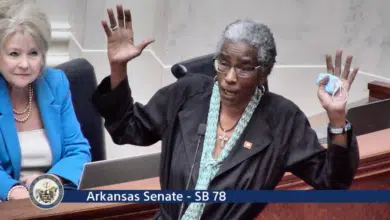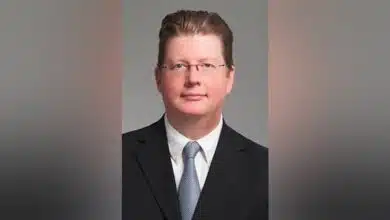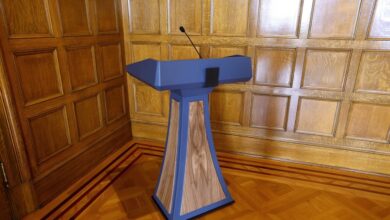by Joe Maynard 1/1/2024
Per numerous conversations over the past many years, it is imperative that we periodically revisit the unclouded principles which initiated our shared objectives. I understand it is difficult when faced with the constructs created before our time or circumstances that have been imposed by other forces. Nevertheless, a failure to remain vigilant in respect to the initial “truths” that prompted all our involvement in the battles of government force and its contributions to the fall of the Republic relegates us to unwittingly becoming part of the problem.
In this respect, I have included excerpts from a recent Hillsdale Imprimis article which I find timely.
( https://imprimis.hillsdale.edu/hillsdales-mission-and-the-politics-of-freedom/ )
“America’s Founders set out to build a government entirely upon the will of the great body of the people. This had never been done before. And they set out to accomplish this across a great continent—George Washington’s army was strikingly called the Continental Army—despite the prevailing idea at the time that popular governments could only work in small areas. They succeeded in doing both these things, and the way they succeeded is contained in the American Constitution, the longest living and the greatest constitution ever written.
“Article I, Section 8 of the Constitution contains 18 paragraphs that enumerate the powers of Congress. Seven of these have to do with national defense, and one with piracy. The rest, save one, mostly have to do with commerce—weights and measures, currency, unimpeded trade between the states, post offices and post roads. The last power has to do with the federal government’s authority over the District of Columbia. Other powers were reserved to the states and localities.
“In Federalist 63, James Madison writes proudly of the fact that ours will be the first purely representative government. This doesn’t just mean that instead of a king being sovereign, as in England, we would elect our rulers. It means that no one inside the government—none of the people carrying on the activities of the government—would be sovereign. The sovereign would be located outside the government. As Abraham Lincoln would later put it, the constitutional majority is the only true sovereign of a free people. All powers are to be delegated from the society to the government.
A diagram of this system would consist of a large circle representing American society. Inside that large circle, government at all levels would be represented by a much smaller circle, about one-tenth the size in terms of gross domestic product. This smaller circle would be divided then into parts. It would be divided vertically with the federal government on one side and states on the other—that’s federalism—and the federal side would be divided horizontally into the legislative, executive, and judicial powers. It was a brilliant and novel system for gathering authority to a national center for limited national purposes and distributing all other authority outwards. And it worked for a very long time.
Our system today looks radically different.
“The circle representing the public sector has grown at an increasing rate for many decades, and in terms of gross domestic product it now takes up over half the space in the larger circle. The divisions in the smaller circle, designed to keep it from growing, have been largely erased. In particular, the separation of powers has been neutralized by the rise of a fourth branch of government, the permanent and unelected bureaucracy or administrative state, which tends to subsume all three powers.
“This is not to say that the people who work in this administrative state are worse people than the ordinary. Probably they are not. But they are actuated by a common interest, and their accountability to the people for whom they make rules is so indirect as to be almost nonexistent. In any case, the resulting centralization of comprehensive power, all at the expense of the private sector, poses a serious threat to the sovereignty of the people.
To see how serious the threat, consider an important fact about our Constitution that calls increasingly for our attention—the fact that the electoral process is the sole constitutional means by which the American people can control the government. To protect the electoral process, the Founders set it up in a decentralized way. Regarding the election of the president, for instance, the Constitution says that state legislatures—not Congress, and not judges or governors—will devise the manner of choosing the electors for president in each state. This is at the heart of the controversy over the last presidential election, in which several governors and judges, using Covid as their justification, changed election laws and processes without consulting the state legislatures. It is impossible, in this light, to swallow whole the claim that the 2020 election was perfectly fair and aboveboard, although the establishment media is entirely untroubled by it.
“Friends of popular government, of whatever party, should all be very troubled. Winston Churchill spoke beautifully of the greatness of Britain residing in “the little man, walking into the little booth, with a little pencil, making a little cross on a little bit of paper” to decide the fate of the nation. Increasingly in America today, the man in the booth is no longer alone. It is not even any longer his initiative that causes him to vote. In many select areas, more often than not, somebody he doesn’t know mails him a ballot or knocks on his door with a ballot. That in itself is an important step toward the centralization and corruption of a process we simply cannot allow to be lost.
“One of the most beautiful laws ever passed was the Homestead Act, signed by President Lincoln in 1862. It consisted of only 1,400 words, and it gave away ten percent of the land area of the United States to unknown people who would never be entitled to vote for anybody serving in the Congress that passed the law. Is it imaginable that the Russian Czar at the time, who in principle owned every inch of Russia, would have acted in such a way? Or the King of England, who in principle had approval power even over private lands in his realm? No. But it is hardly more imaginable that Congress or most of our state legislatures would act in such a way today. The force of centralization has come to seem inexorable.
“But it should be our highest political priority to reverse it.”
Larry P. Arnn
President, Hillsdale College
November 2023/Volume 52, Issue 11
*****
For too many, the decision, the work required, and the diversity of support needed to become elected has a softening effect on our original motivations and perspectives. Once securing a public office, we then discover the size and scope of that organism we seek to change or at least rein in. It is true that the current overgrown system has many more roadblocks to change than we would have ever imagined. We find that making those changes, reducing the size and scope of government, may just be more than that for which we signed up. It will take longer and be more difficult than most are willing or capable of accomplishing in their tenure.
We then find the majority of our time is spent with those already subsumed by the mechanisms and “new realities” of navigating the bureaucracy. We are surrounded and spend our time too often discussing the impossibility of any significant change to the status quo. We lose touch with the electorate that put us in these positions and succumb to the reality that only small incremental change is possible. After all, those that occupy similar positions and have had similar pontifications have realized and continually remind us that the electorate just simply does not understand the reality of our situation. This further alienates us from those claiming to be “We the People.” All the while, the separation from and the power of government (force) over the people continues to outpace anything we are willing to do to return that power to the individual.
The next phase of difficulty we encounter is that to accomplish anything that would have a long-term effect on the power of the state will negatively affect one or more segments of the electorate. We then too often compromise away those very principles that initiated our involvement in the first place. How often do we think or hear: “If I do X or Y, I might not get re-elected. If I cannot remain in office, I can do no good for anyone.” At that point, a choice has been made, arguably pragmatic, but a surrender to the bureaucracy, nonetheless.
I would argue that this is what got us where we are today and will doom all our not-too-distant futures unless and until there are those few of us willing to join firmly together in basic, no-compromise positions that allow We the People to make a clear choice for a continuation of the “free from government” experiment, controlled by local or individual action, acknowledging the consequences of individual choices we make, and enduring the individual burdens of that freedom envisioned by generations past. Not acting in a bold and revolutionary way will only prolong the inevitable. This generation is likely the last to have known any semblance of that liberty intended by previous ones. We must break the bondage and entanglements of federal mechanisms that control most of our states’ sovereignty. We must stop the flow of unnecessary, and I would argue, unconstitutional support of federal controls and bureaucrats that limit our individual rights. Government force and imposed mediocrity must not be allowed to continue to direct and manage our decline into mass servitude.
Together, let’s find that way to offer a governing body that is only a fraction of its current size that provides only that basic environment delineated in those founding documents which ensures only life, liberty, and the pursuit of happiness. Enough is enough!
If not us, who? If not now, when?






